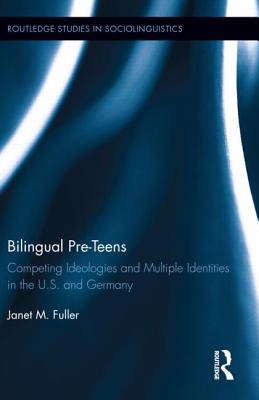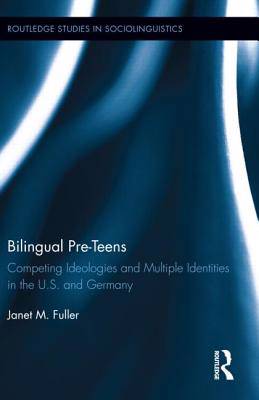
- Afhalen na 1 uur in een winkel met voorraad
- Gratis thuislevering in België vanaf € 30
- Ruim aanbod met 7 miljoen producten
- Afhalen na 1 uur in een winkel met voorraad
- Gratis thuislevering in België vanaf € 30
- Ruim aanbod met 7 miljoen producten
Bilingual Pre-Teens
Competing Ideologies and Multiple Identities in the U.S. and Germany
Janet M FullerOmschrijving
This volume examines the connection between socio-economic class and bilingual practices, a previously under-researched area, through looking at differences in bilingual settings that are classified as "immigrant" or "elite" and are thus linked to socio-economic class categories. Fuller chooses for this examination bilingual pre-teen children in Germany and the U.S. in order to demonstrate how local identities are embedded in a wider social world and how ideologies and identities both produce and reproduce each other. In so doing, she argues that while pre-teen children are clearly influenced by macro-level ideologies, they also have agency in how they choose to construct their identities with relation to hegemonic societal discourses, and have many other motivations and identities aside from social class membership which shape their linguistic practices.
Specificaties
Betrokkenen
- Auteur(s):
- Uitgeverij:
Inhoud
- Aantal bladzijden:
- 188
- Taal:
- Engels
- Reeks:
- Reeksnummer:
- nr. 6
Eigenschappen
- Productcode (EAN):
- 9780415807289
- Verschijningsdatum:
- 22/05/2012
- Uitvoering:
- Hardcover
- Formaat:
- Genaaid
- Afmetingen:
- 155 mm x 229 mm
- Gewicht:
- 385 g

Alleen bij Standaard Boekhandel
Beoordelingen
We publiceren alleen reviews die voldoen aan de voorwaarden voor reviews. Bekijk onze voorwaarden voor reviews.











